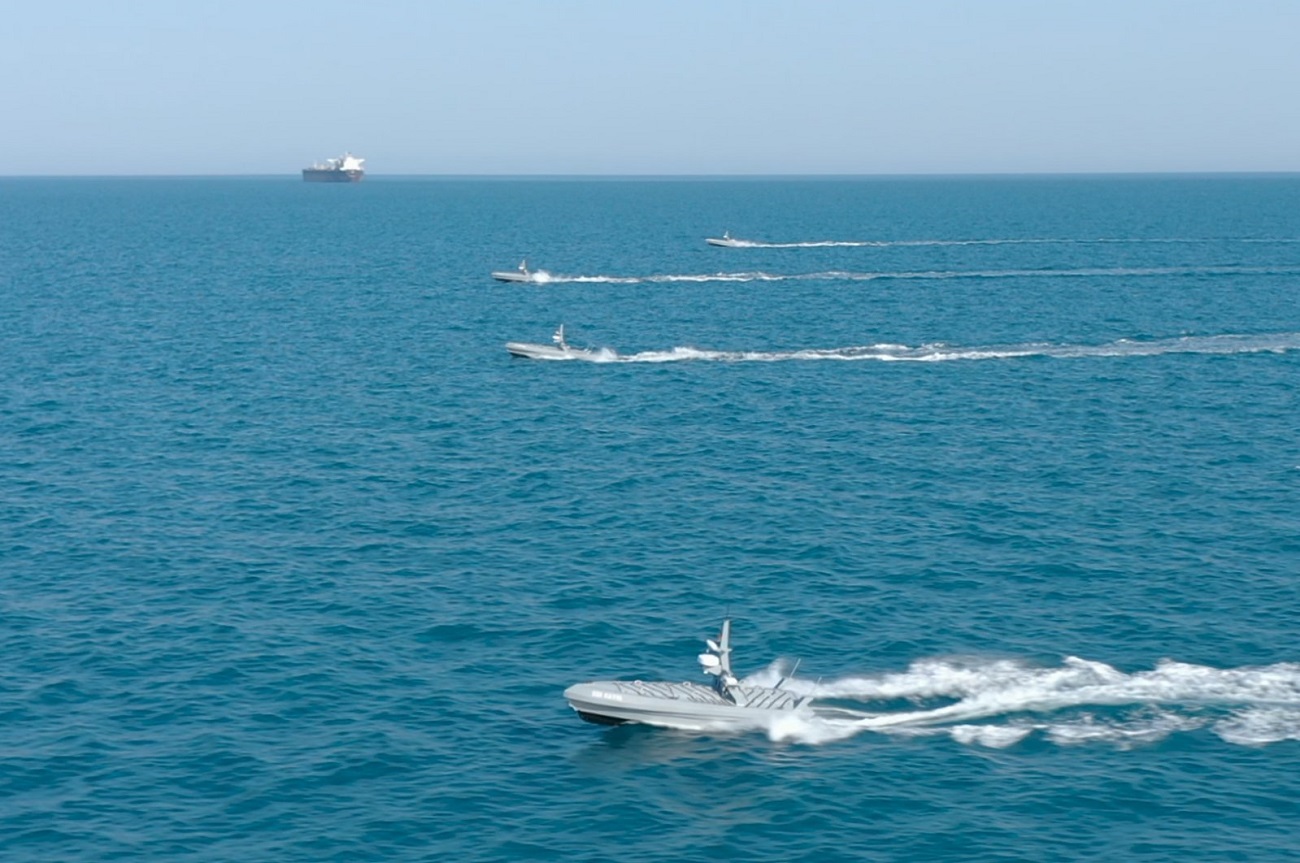Turkish naval kamikaze drones have successfully executed a trial operation that showcases their exceptional capabilities. The recently tested Albatros-S Kamikaze Unmanned Surface Vehicle (USV), developed by Aselsan, managed to strike and sink a 22-meter-long target ship off the coast of Mersin. This event represents a remarkable advancement in naval warfare, combining the precision of unmanned vehicles with a kamikaze attack concept. The trial, which was closely monitored by high-ranking officials, marks a pivotal moment in the Turkish defense industry’s journey towards increased autonomy and efficiency in maritime operations. The Albatros-S USV is a testament to Turkey’s growing prowess in naval technology. During the test, a swarm of eight Albatros-S USVs executed a coordinated attack on the target ship. Equipped with an onboard high-explosive warhead developed by ROKETSAN, one of these USVs struck the target ship with pinpoint accuracy, leading to its rapid sinking. This remarkable success underscores the precision and destructive power of Albatros-S, making it a formidable asset in naval operations.
What sets this trial apart is the collaborative operation between the Albatros-S USVs and a Bayraktar TB2 UAV from the Turkish Naval Forces Command (TNFC). In a first-of-its-kind operation worldwide, the UAV detected the target, and the USVs executed the kamikaze attack. This synergy between UAVs and USVs expands the tactical options for naval operations, offering both precision and versatility. It showcases Turkey’s commitment to staying at the forefront of naval technology and adaptability in modern warfare. Notably, to minimize environmental damage, the test took place after thorough preparations to clean the target ship, removing any elements that could cause pollution, such as fuel and oil. This conscientious approach highlights Turkey’s commitment to environmentally responsible military testing, which is crucial for maintaining ecological balance and minimizing the impact on marine ecosystems.

The journey to the successful testing of Albatros-S USVs began with the Swarm USV Project, initiated under the coordination of the Defense Industry Agency (SSB), and a contract with ASELSAN. The project’s first swarm use demonstration occurred with four Albatros-S USVs in 2021, and the first phase was completed in August 2021. Subsequently, in June 2022, the Heterogeneous USV Swarm, comprising four different types of USVs, operated together in the Mediterranean. In February 2023, a significant milestone was achieved when a swarm of eight Albatros-S USVs participated in the joint USV-UAV operation. This relentless drive for innovation and autonomy in naval technology signifies Turkey’s commitment to modernizing its defense capabilities. The Albatros-S USVs’ basic capabilities extend beyond kamikaze attacks. They can perform tasks such as search and rescue operations, wide-area scanning and detection, escort missions, and engaging suspicious vehicles without risking human personnel. The versatility of these USVs expands their potential applications across a wide range of naval operations.
The remarkable speed at which the Albatros-S kamikaze boat project has moved from concept to successful testing is a testament to the efficiency and capability of the Turkish defense industry. Aselsan developed the new generation Albatros-S with subcontractors. Within the scope of the project, a tactical mesh communication capability was created for the maritime environment. While the project’s first phase has been completed, the second phase activities continue, where different tasks and formations will be tested. The approximately 7-meter (23-foot) long USV designed for herd missions has a speed of over 40 knots, a cruising range of over 200 nautical miles and a significant payload capacity. Herd USVs will be able to continue their duty safely against various obstacles with capabilities such as a domestic communication system, control system, multi-communication system architecture and a global navigation satellite system (GNSS). The USVs also have the ability to maintain their duties in a non-communication environment. The versatility and precision of Albatros-S USVs open up new avenues for future applications in various maritime operations, marking a promising future for Turkish naval technology.















